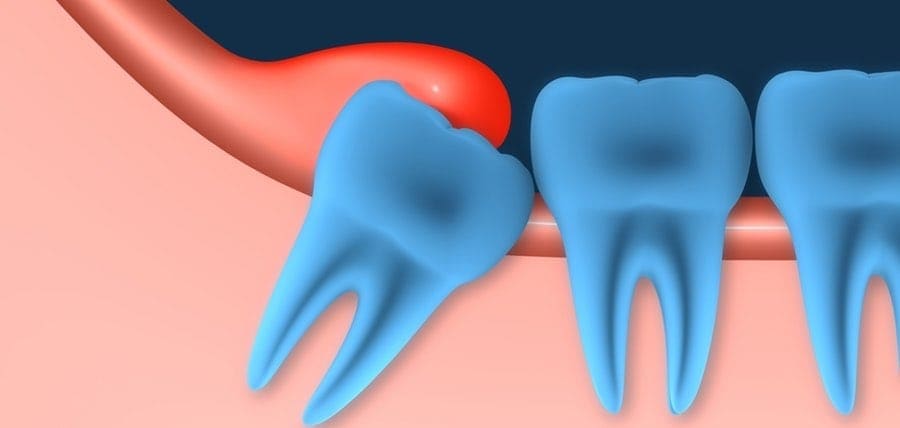Infected Wisdom Tooth?
Wisdom teeth are the source of numerous dental problems, and many people elect to extract them to prevent future issues. Compared to other teeth, these third molars are highly prone to infection. Whether you are a teenager or an adult who elected to keep your wisdom teeth, if you suspect one may be infected, it is important to seek out dental treatment.
Know the Reason for Wisdom Teeth Infections
The third molars, often referred to as the wisdom teeth, are prone to infection. Located in the back of the mouth, there is often little room to accommodate these teeth. Overcrowding puts the wisdom teeth at high risk for developing an infection, especially since these teeth are so difficult to access with brushing and flossing.
Even if the wisdom teeth haven’t erupted through the gums, they may still develop an infection. Food debris and plaque can collect under the gums, creating a breeding ground for harmful bacteria. Once an infection sets in, it is unlikely to heal on its own, and dental intervention will be necessary.
Know the Signs of an Infected Wisdom Tooth
The first step in treating an infected wisdom tooth is identifying the problem, and there are many symptoms that may point to an infection:
- Pain. The most common sign of an infected wisdom tooth is pain, but it doesn’t always stay within the tooth. Pain can travel into the jaw, neck, and throat, and some people even experience secondary headaches.
- Swelling. As the infection spreads outwards, it may cause swelling in some of the surrounding tissues. This can include the gums, jaw, and even lymph nodes. When the swelling moves into the neck region, it may even produce a sore throat.
- Bad breath. As bacteria levels grow out of control in the mouth, you may experience bad breath and an unpleasant taste in the mouth. This symptom won’t resolve until the infection is treated.
- Feeling unwell overall. An infection of the wisdom teeth can easily travel into the bloodstream and affect the rest of your body. You may feel unwell overall, and fever, body aches, and a loss of appetite may result.
In rare cases, it is possible for the infection to become severe, and emergency medical treatment may be required.
Treatment Options for Infected Wisdom Teeth
Your dentist can take either a surgical or non-surgical approach to treat your wisdom tooth infection. Without surgical intervention, you may receive a prescription for strong antibiotics and take pain medications to alleviate discomfort. However, since a vast majority of wisdom teeth need to be removed at some point in life, many dentists simply extract the teeth. This will treat the current infection and prevent future problems.
The extraction process is usually completed under general anesthesia to prevent pain and discomfort. It involves cutting into the gums and jaw bone to access the wisdom teeth and remove them in one or multiple pieces. The area is cleaned to remove any infection, and the wound is stitched shut to promote fast healing.
While some people retain their wisdom teeth for life and never have an issue, chances are high that you’ll require some type of wisdom teeth treatment in your life. By educating yourself about the signs of a problem and potential treatment options, you can successfully recover from a wisdom tooth infection.
Get Help With An Infected Wisdom Tooth
Do you think you have an infected wisdom tooth? Do not wait. Contact Suburban Essex Dental now. We are located in West Orange, NJ in the county of Suburban Essex. We have been rated “Top Dentist” for the past 7 years and are still going strong. Contact Suburban Essex Dental to schedule your appointment today.







